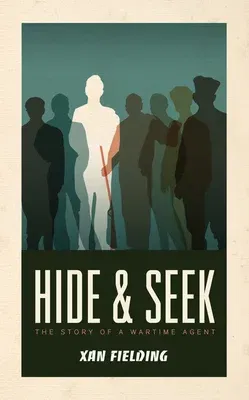One of the great books of the Second World War--Antony Beevor
Hide and Seek, first published in 1954 and unavailable for many years,
is surely among the best wartime memoirs. It is narrated in a vivid
close-up style...by a man who spent two years in caves and other
hideouts in the White Mountains, venturing to the coast only to guide a
supply submarine with flashing torch, or to smuggle endangered or
exhausted colleagues to safety in Cairo...It is remarkable that he lived
to tell the tale; that he does so with such modesty, grace and humour is
extraordinary.--James Campbell, Times Literary Supplement
Xan Fielding was a gifted, many-sided, courageous and romantic figure,
at the same time civilized and Bohemian, and his thoughtful cast of mind
was leavened by humour, spontaneous gaiety, and a dash of recklessness.
Almost any stretch of his life might be described as a picaresque
interlude.--Patrick Leigh Fermor
In January 1942, Xan Fielding landed on German-occupied Crete with
orders to disrupt the resupply of Rommel's Afrika Korps and establish an
intelligence network in cooperation with the Cretan resistance movement.
Working with bands of Cretan partisans, he succeeded magnificently. In
this memoir of his wartime exploits, Fielding presents a portrait of the
quintessential English operative--amateur, gifted, daring, and charming.
From the new foreword by Robert Messenger:
Hide and Seek is a classic of British war literature, an understated
account of a man's coming-of-age thanks to the sudden shouldering of
great responsibility. Fielding is deprecating about the dangers and his
own achievements. It is typical of the quiet and reticent man who
preferred to live outside the limelight and wrote matter-of-factly about
the war rather than with a gloss of adventure or heroism. There's a
scene, late in 1943, when Fielding and a group of partisans study the
German's list of 'wanted' men. He notes 'with regrettable but only human
pride that the entry under my local pseudonym, which outlined in detail
my physical characteristics, aliases and activities for a period of
eighteen months, took no less than three-quarters of an octavo page in
closely-set small-point type.' The Germans had surely measured his
worth.
Xan Fielding (1918-1991) was a British writer and traveler, and a
lifelong friend of Patrick Leigh Fermor, who served with him in Crete
during World War II. (The introduction to Fermor's A Time of Gifts is
written as a Letter to Xan Fielding.) Fielding also translated many
novels from French, most notably, The Bridge on the River Kwai and
The Planet of the Apes.
Robert Messenger is the books editor of the Wall Street Journal.

